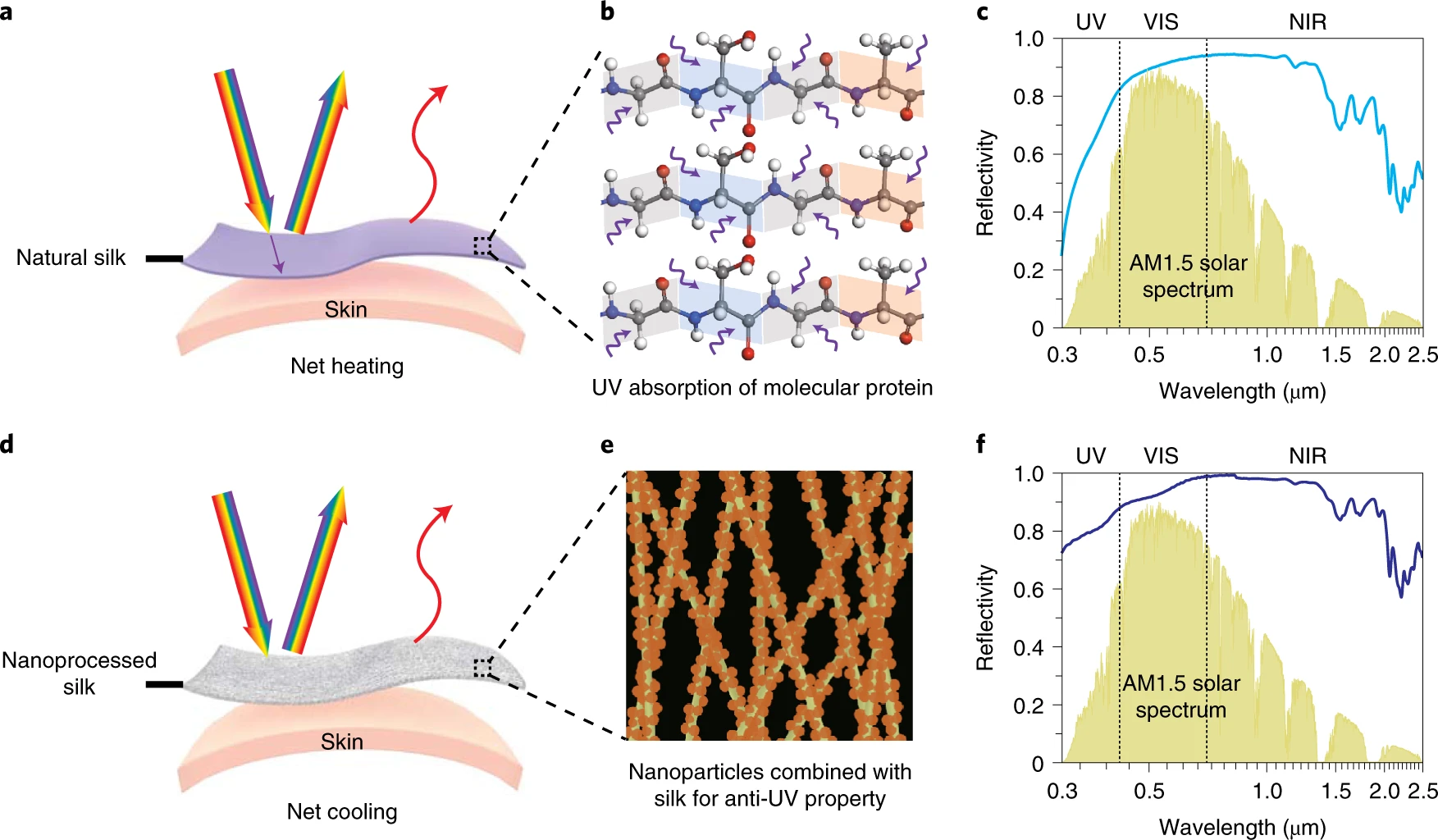Decreasing energy consumption is critical
to sustainable development. Because temperature regulation for human comfort
consumes vast amounts of energy, substantial research efforts are currently
directed towards developing passive personal thermal management techniques that
cool the human body without any energy consumption. Silk is famous for its
cooling and comforting sensation on skin, with its optical properties derived
from its hierarchical microstructure, may represent a promising starting point
for exploring daytime radiative cooling.
In a recent collaborative work with researchers from Stanford University, Nanjing University and Wuhan Textile University, we explore the nanoprocessing of silk through a molecular bonding design and scalable coupling reagent-assisted dip-coating method, and demonstrate that nanoprocessed silk can achieve subambient daytime radiative cooling. This subambient daytime radiative cooling of nanoprocessed silk was achieved without compromising its wearability and comfort. This strategy of tailoring natural fabrics through scalable nanoprocessing techniques opens up new pathways to realizing thermoregulatory materials and provides an innovative way to sustainable energy. This paper, entitled “Subambient daytime radiative cooling textile based on nanoprocessed silk” is published in Nature Nanotechnology. Congratulations to the lab!
Paper Link:https://www.nature.com/articles/s41565-021-00987-0

Subambient daytime radiative cooling design for nanoprocessed silk


